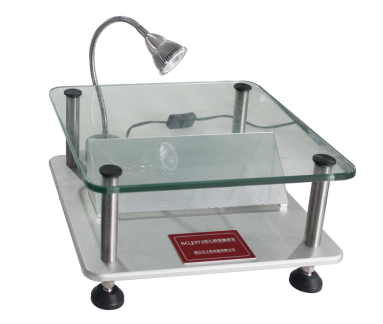Evaluates material resistance to ethanol exposure via immersion, spot, or wipe tests.
WhatsApp : +86 13816217984
Email : info@qinsun-lab.com

Ethanol is a common solvent and chemical that can adversely affect the appearance and performance of many materials. An Ethanol Resistance Tester allows manufacturers and researchers to determine a material's susceptibility to damage from ethanol exposure under controlled conditions.
Testing typically involves preparing material specimens and exposing them to ethanol using one or more standardized methods:
Immersion Test: Specimens are fully or partially submerged in ethanol for a specified period and temperature.
Spot Test: A small volume of ethanol is placed on the surface of the specimen and often covered to prevent evaporation, allowing prolonged contact with a concentrated area.
Wipe Test (Rub Test): The surface is mechanically rubbed a specified number of times with a cloth or pad saturated with ethanol, often under a controlled force.
After the exposure period, the specimens are cleaned (if necessary) and evaluated for any changes compared to an unexposed control specimen. Evaluation criteria may include visual changes (discoloration, staining, blistering, cracking, swelling, loss of gloss), changes in weight or dimensions, or changes in mechanical properties (e.g., hardness, adhesion, flexibility). The severity of the changes is often rated using standardized scales or measured quantitatively.
The instrument is used in laboratories for:
Evaluating the durability of coatings, paints, inks, and finishes when exposed to ethanol.
Assessing the resistance of plastic components to ethanol-containing fluids.
Testing materials for use in automotive interiors, fuel systems, and electronic devices.
Quality control to ensure materials meet resistance specifications.
Research and development of new materials and surface treatments with improved ethanol resistance.
ASTM D1308
ASTM D543
ISO 2812-1
ISO 2812-4
Provides objective data on a material's resistance to ethanol exposure.
Essential for selecting materials suitable for applications where ethanol contact is expected.
Helps predict material performance and lifespan in relevant environments.
Standard compliant test methods are available and can be adapted for ethanol testing.
Allows for evaluation of various types of degradation (visual, physical, chemical).
Useful for quality control, material comparison, and product development.
Test containers or chambers made from materials resistant to ethanol, designed to hold test specimens and ethanol safely and prevent evaporation.
(For immersion tests) Fixtures or racks to hold specimens submerged in ethanol.
(For spot tests) Means to place a defined amount of ethanol on the surface and cover it (e.g., watch glasses, sealing films).
(For wipe tests) Mechanical rubbing device capable of applying a controlled force, speed, and number of strokes using a test media saturated with ethanol.
Temperature control system (e.g., temperature-controlled bath, oven, or chamber) to maintain the specified exposure temperature.
Timer for controlling the exposure duration.
Visual inspection area with standardized lighting for evaluating specimen changes.
(Optional) Equipment for quantifying changes in properties, such as a gloss meter, colorimeter, or hardness tester.

Disclaimer: Le contenu ci-dessus est destiné à des fins de référence et de communication uniquement entre les initiés de l'industrie, et ne garantit pas son exactitude ou son exhaustivité. Conformément aux lois et règlements pertinents et aux règlements de ce site Web, les unités ou personnes qui achètent des articles connexes doivent obtenir des qualifications et des conditions de qualification valides.
Téléphone de l'entreprise
+86-21-6420 0566
Heures de travail
Du lundi au vendredi
Téléphone portable:
13816217984
Courriel :
info@qinsun-lab.com
